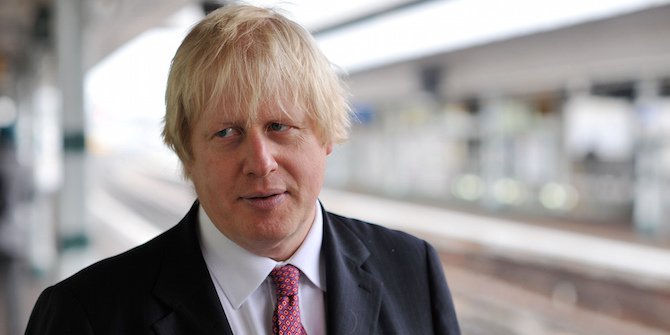 Following the British vote to leave the EU, Maitreesh Ghatak assess the impacts on Indian businesses and considers that argument that India could potentially benefit from relaxed immigration. He writes that although the claim has some validity, it has several caveats.
Following the British vote to leave the EU, Maitreesh Ghatak assess the impacts on Indian businesses and considers that argument that India could potentially benefit from relaxed immigration. He writes that although the claim has some validity, it has several caveats.
The British voters voted, by a margin of 52% to 48%, for the exit from the EU, referred to as Brexit. Thanks to the referendum, we will be witnessing the unique phenomenon of an electorally engineered recession in a major economy.
The pound has hit a historical low and stock markets have taken a severe beating, leading to shockwaves all over the world. As to the short to medium term economic outlook, we can expect inflation to rise as goods and services from other countries will become more expensive. Unemployment will rise, wage growth will slow, and government finances will be in trouble as tax revenues will fall, which will likely result in greater austerity and more benefits cuts.
Of course a lot depends on how the renegotiation with the EU goes in terms of specifics of trade and migration, but economic studies suggest a 1-3% decrease in the size of the economy. To illustrate, a 1% drop in GDP is a reduction by 19 billion pounds, or roughly 720 pounds for each household per year. The reasons are simple: prolonged uncertainty, reduced access to a single large market, and reduced investment from overseas.
No wonder, an overwhelming majority of economists – from Nobel Laureates to the Chairman of the Bank of England – opposed Brexit. So did the leadership of all three major parties, from “neo-liberal” Cameron to “far-Left” Corbyn, major business leaders like Richard Branson, and the major trade unions. So did world leaders from all major democratic countries (including the Prime Minister of India), except for Donald Trump.
India is the second-largest source of foreign direct investment (FDI) for Britain. The most obvious way Brexit will affect Indian business in the UK is increased costs due to fall of the British pound, and more importantly, the uncertainty of being in uncharted territory for a prolonged period of time, as the post-Brexit negotiations go on. This is a classic “unknown problem-unknown-solution” situation that businesses hate.
Not just that, support for Brexit has come from parties with diametrically conflicting political agendas, the UKIP, the Eurosceptic Tories, and some sections of the Labour Party. Who will drive the policy agenda?
With David Cameron having resigned, who will lead the negotiations with the EU? All this uncertainty means major investment plans for businesses will be on hold for a while, reinforcing the recessionary pressures on the economy.
Moreover, Britain will be a less attractive destination for foreign investors since it will no longer be the gateway to Europe. Now negotiations with the UK and the EU will have to be separate. Not just that, given the much larger size of the EU market, major manufacturers will no longer find it attractive to base their operations in the UK, since they will have to deal with different sets of safety and environmental standards. Also, the logistical operations of the many Indian companies with a substantial presence in the UK will have to change.
There is one channel, though, through which India could potentially benefit, and that is immigration. Given the free inflow of low-skill migrants from the EU (mainly Eastern Europe), in recent years the Tory Government has tightened the cap on non-EU migrants, and this directly affects India. Some Indian supporters of Brexit are hoping that now the UK will be keen to forge stronger ties with the Commonwealth and India will benefit from that. This argument has some validity but there are several problems with it.
First, this argument assumes labour demand will be strong which is not likely to be the case if a prolonged recession ensues.
Second, to believe that a fundamentally anti-immigrant political movement like the UKIP will embrace Indian immigrants with open arms is to forget the history of how this particular strand in British politics treated Indians in the pre-EU migrant-flow days and its present xenophobic rhetoric. It is a bit like believing that a fox will guard the henhouse.
Third, promises are just promises. Last morning, after the results were declared Nigel Farage, the UKIP leader, has admitted that the Brexit campaign’s promise to fund the NHS with the 350 pounds million/week savings from payments to the EU was “a mistake.” This does not inspire confidence in other promises made by the “Leave” movement.

Now that the deed is done and it is the proverbial morning after, it is interesting to see how the leaders of the “Leave” movement are backtracking furiously to manage expectations. Boris Johnson, the former London Mayor and the Eurosceptic Tory leader backing the Brexit campaign, has said that the UK is in no rush to leave the EU, even as EU officials asked the UK to implement Brexit as soon as possible, to minimise uncertainty. As they say, be careful with what you wish for, as you might get it!
The economic costs aside, David Cameron’s career is unlikely to be the only major political casualty of Brexit.
This article originally appeared on 25 June 2016 on NDTV Opinion. It is reposted with the author’s permission.
Note: This article gives the views of the author, and not the position of the South Asia @ LSE blog, nor of the London School of Economics. Please read our comments policy before posting.
About the Author

Maitreesh Ghatak is Professor of Economics at the LSE. He is Lead Academic on the IGC India-Bihar country team and Economic Organisation and Public Policy Programme Director at STICERD.





